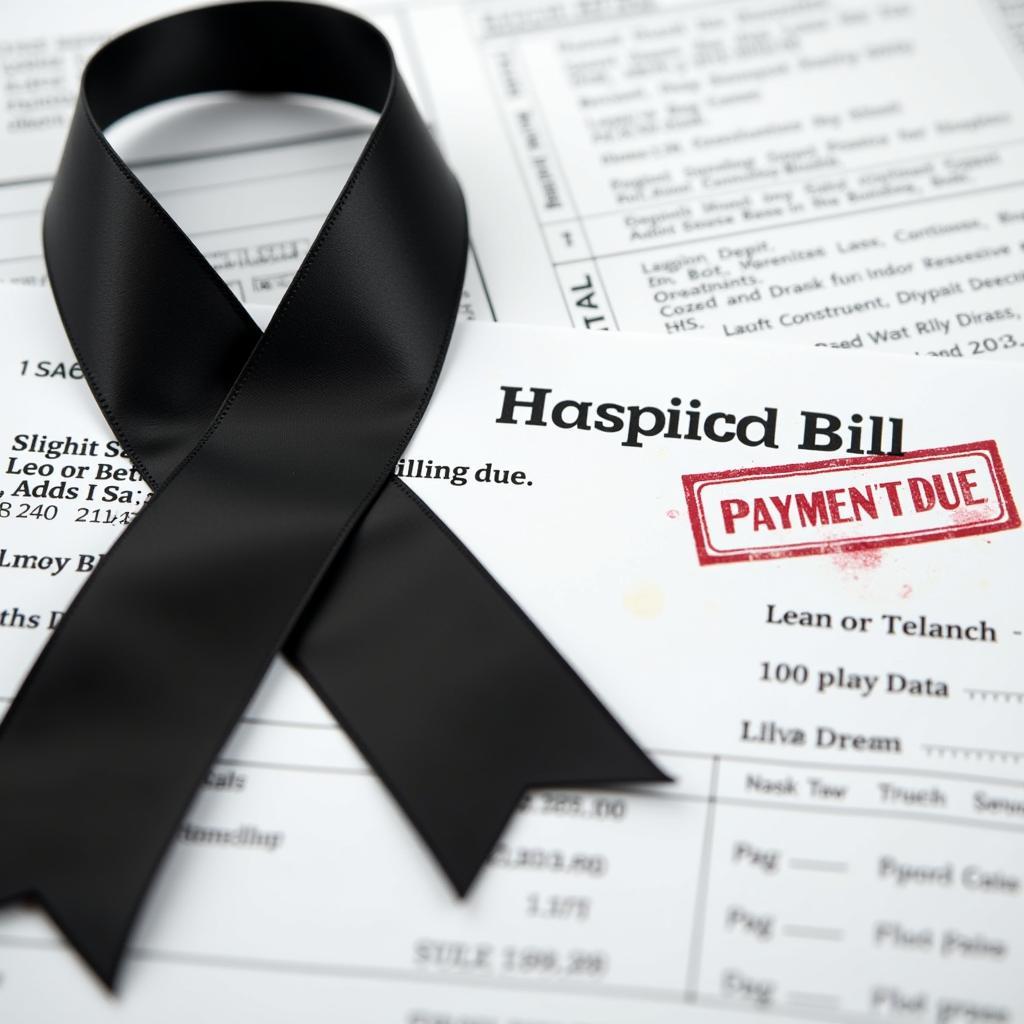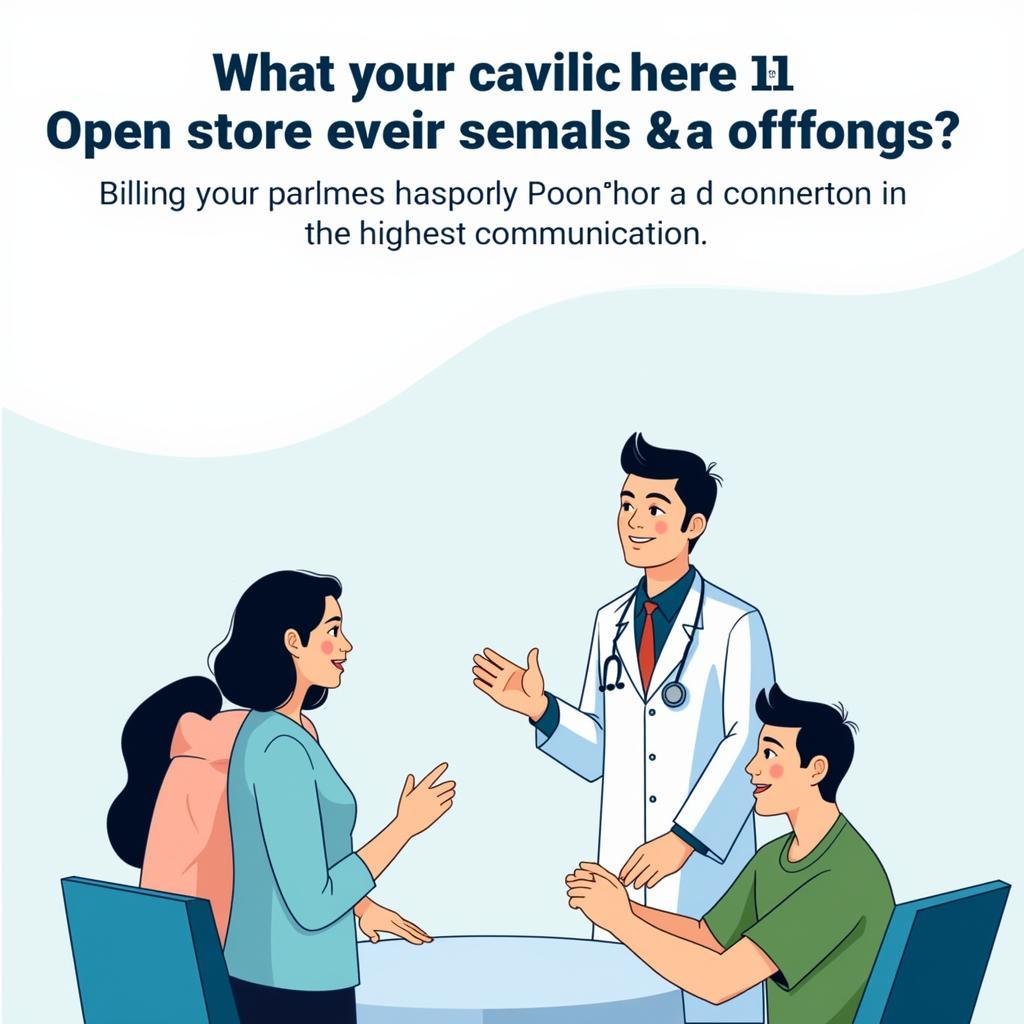When a patient dies in a hospital, the question of who is responsible for the outstanding medical bills often arises. This is a complex issue with no single, easy answer, as various factors influence the final outcome. Factors such as insurance coverage, the patient’s estate, and government programs all play a role.
Understanding Hospital Billing After a Patient’s Death
The process of settling a hospital bill after a patient dies can be confusing and emotionally challenging for surviving family members. Understanding the key players and procedures involved is crucial for navigating this difficult time.  Hospital bill payment after patient death
Hospital bill payment after patient death
Who Is Initially Responsible?
The deceased patient’s estate is primarily responsible for settling any outstanding medical debts. This estate comprises the assets and properties owned by the patient at the time of death. The executor or administrator of the estate is legally obligated to use these assets to pay off valid debts, including hospital bills. It’s important to understand that family members are generally not personally liable for these debts unless they co-signed a loan or agreement for the medical services.
The Role of Health Insurance
If the patient had health insurance, the insurance company is typically the primary payer for the medical expenses incurred before death. The hospital will bill the insurance company directly, and the estate is responsible for any remaining balance after the insurance payment. This remaining balance can include deductibles, co-pays, and any services not covered by the insurance policy. It is essential to contact the insurance company promptly to notify them of the death and to understand the coverage details and claim process.
Government Programs and Assistance
In certain situations, government programs like Medicare or Medicaid may cover some or all of the hospital expenses. Eligibility criteria vary depending on the program and the patient’s circumstances. It’s crucial to explore these options and apply for assistance if eligible. For those who qualify, these programs can significantly reduce the financial burden on the estate.
What Happens if the Estate Cannot Pay?
If the deceased patient’s estate lacks sufficient funds to cover the outstanding medical bills after insurance and government assistance, the hospital may absorb the remaining balance as a loss. Hospitals often have processes in place to handle such situations, and they may negotiate a reduced payment with the estate. While hospitals are businesses, they also understand the emotional and financial strain on families during bereavement.
Avoiding Misunderstandings and Disputes
Clear communication with the hospital’s billing department is essential throughout the process. Keeping records of all correspondence, bills, and insurance payments is crucial. This documentation can help avoid misunderstandings and potential disputes regarding the outstanding balance.
 Communicating with the hospital billing department
Communicating with the hospital billing department
Seeking Professional Advice
Navigating the complexities of hospital billing after a death can be daunting. Consulting with an estate attorney or financial advisor can provide valuable guidance and support during this challenging time. These professionals can help understand legal obligations, explore available options, and ensure that the estate is handled properly.
Conclusion
Dealing with hospital bills after a loved one’s passing can be emotionally and logistically challenging. Understanding who pays the bill when a patient dies in hospital requires understanding the interplay between the patient’s estate, insurance coverage, and potential government assistance. By being proactive, communicating effectively with the hospital, and seeking professional advice if needed, families can navigate this difficult process with greater clarity and confidence.
FAQ
- Are family members legally obligated to pay the hospital bills of a deceased relative? Generally, no, unless they co-signed a financial agreement.
- What happens to medical debt if the estate cannot pay? The hospital may absorb the remaining balance or negotiate a reduced payment.
- How can I find out about government programs that may assist with hospital bills? Contact your local social services agency or hospital social worker.
- What should I do if I disagree with the hospital bill? Contact the billing department and discuss your concerns. Keep detailed records of all communication.
- Is it necessary to hire an attorney to handle hospital bills after a death? While not always required, an attorney can provide valuable guidance and protect your interests.
- Can I negotiate a payment plan with the hospital? Many hospitals are willing to work with families to establish manageable payment plans.
- What documents do I need to provide to the hospital and insurance company? Death certificate, insurance policy information, and any relevant medical records.
If you need further assistance, please contact us at Phone Number: 02437655121, Email: [email protected]. Our dedicated team is available 24/7 to assist you. You can also visit our location at 298 Cau Dien St., Minh Khai Ward, Bac Tu Liem District, Hanoi, Vietnam. We also invite you to learn more about our hospital sleep study cost.